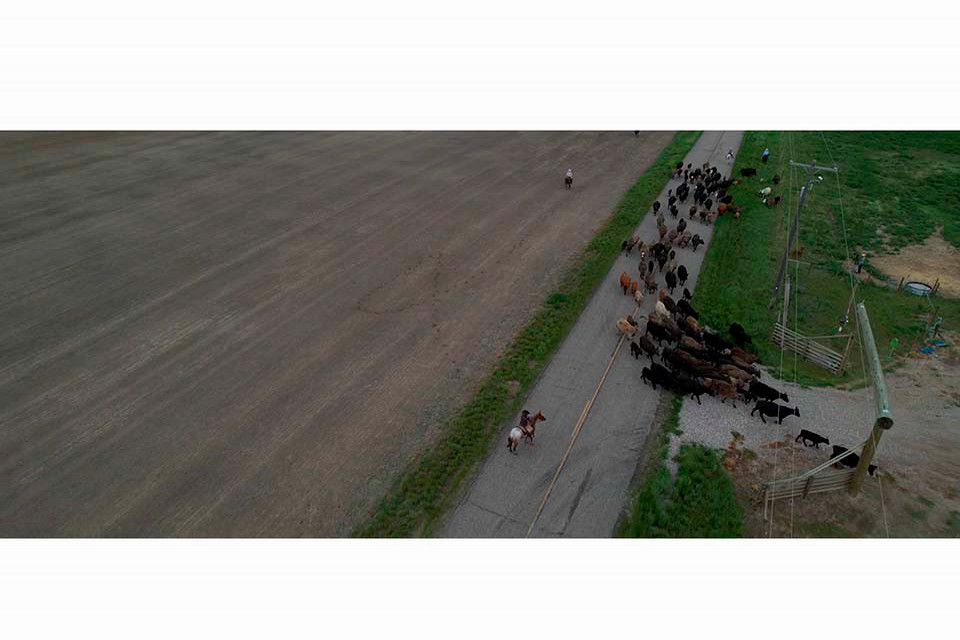A Communal Experience: Sarah Perkins Creates Dissertation Film With New Collaborators and Audiences

Photo Credit: Sarah Perkins
February 16, 2024
Abigail Arnold | Graduate School of Arts and Sciences
Sixth-year English PhD student Sarah Perkins is working to present her dissertation research in new ways, with new audiences and new collaborators. Her project? Creating a film based on the biblical story of Job alongside a community in rural Idaho. This dissertation project was made possible by the Brandeis English department’s 2021 decision to change the structure and requirements of their PhD program, including allowing dissertations beyond the traditional book-length manuscript that the discipline usually demands. Perkins took the opportunity to incorporate her own interest and experience in film into her work. Here’s how she’s creating her non-traditional dissertation.
Perkins brought together research interests and outside interests: she had been researching the Job narrative while in the program but also had previous experience working in documentary film (even before her Brandeis days) and knew that she was interested in continuing on that path. “I wanted to do something that would marry my research interests with film,” she said, “and I wanted to do docufiction and something more narrative.” When her mother’s childhood home in Idaho became available to rent, she took the opportunity to set her work in that community.
For Perkins, one of the most interesting aspects of her project has been combining the academic approach with community-embedded work. Now having been in Idaho for about a year, she said, “I was excited about coming to a community that’s almost entirely disconnected from university spaces. People here are really intelligent and thoughtful, and less than three percent of them have a BA. They have really deep knowledge and modes of knowing that are disconnected from university research. I was excited about bridging that and bringing my knowledge to a community with a different approach and seeing what came of that.” The work of connecting with new people has been a big part of what she does; she said, “The people in this are our neighbors and people we’ve worked hard to connect with and be in a more authentic relationship with so they can trust us with stories from their lives and work.” Furthermore, the project has brought out some of the connections between different modes of communication and knowledge creation. Perkins said, “In the academic world, I think there’s this image of academic work as isolating: the genius working alone in their dark room with a computer and books. It’s not totally inaccurate, but film work depends on a community coming together to make it happen, and I think that’s accurate to academia as well. A cool aspect of this project has been to bring community to the fore more and acknowledge it.”
Perkins also thought about how this project could help bring her work to a broader audience. She would like her dissertation to reach people beyond the academy. “I’m trying to make it more public-facing,” she said. “I think there’s space for dissertations that mostly live in the reading room and there’s a lot of utility and personal growth that comes from that, so I’m not discounting it. But I imagine this having a life beyond the experience of making.”
When asked about advice for other students who might be considering non-traditional dissertation projects, she emphasized the need to build one’s dissertation around one’s own interests. “If you’re working on something that you care a lot about, it’s going to be a lot easier to do the project,” she said. “Maybe you care about reading and writing literary criticism–then do that! But maybe you care about music or public arts projects. Think about what about them fascinates you and lights you up. Dissertation projects take a lot of work, so try to make sure you’re doing something that will bring you energy and happiness.”
Following the English department’s curricular changes, several students are working on non-traditional dissertation projects. Follow our links to read about two others, Nayoung Kim and Yi He. You can learn more about the English PhD program on our program page and the department website.






